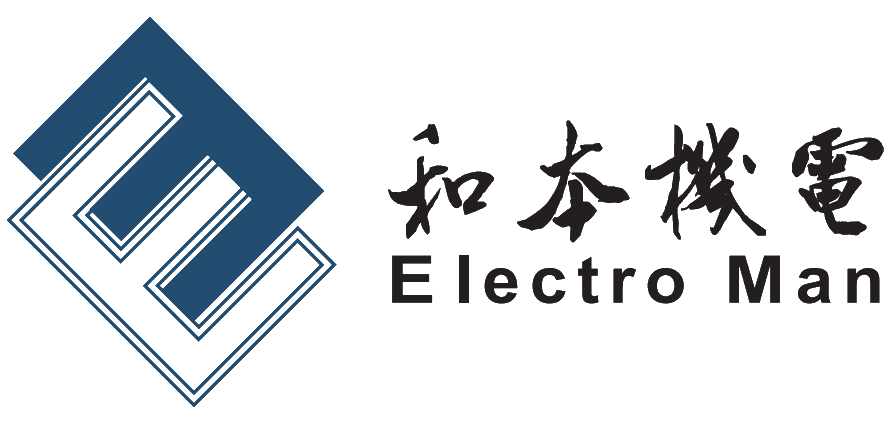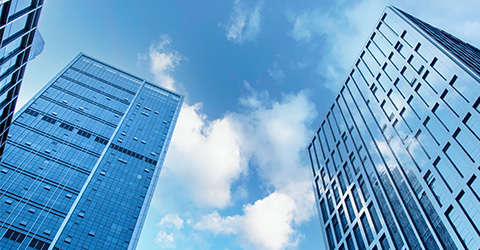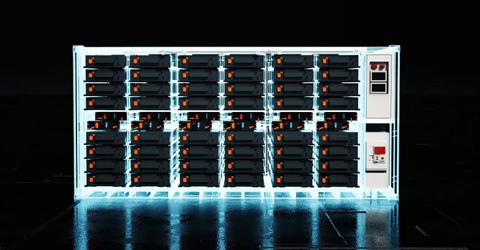25
2024
-
09
Lebanon crisis, multiple solar panels exploded, what is the truth?
Author:
Following the pager explosion incidents in multiple locations in Lebanon on September 17, another series of communication device explosions occurred in various parts of Lebanon on the afternoon of September 18. According to reports from CCTV on the afternoon of the 18th, multiple explosions took place in the capital Beirut, Marjayoun in the southeast, and the Bekaa Valley in the east, involving devices such as pagers, walkie-talkies, and wireless communication equipment.
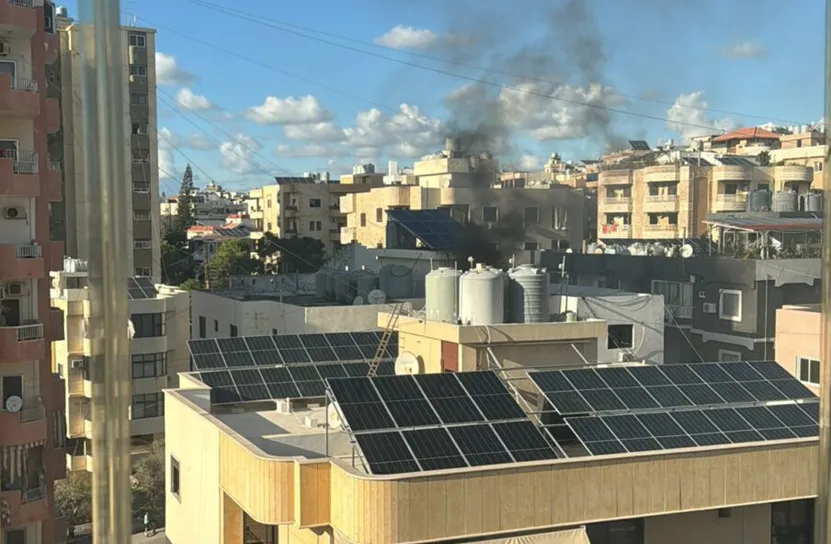
Written by | Penn
Edited by | Tang
→This is the 1229th original article of 'Global Zero Carbon'
Following the pager explosion incidents in multiple locations in Lebanon on September 17, another explosion of communication devices occurred in several areas of Lebanon on the afternoon of September 18 local time. According to reports from CCTV on the afternoon of the 18th, multiple explosions occurred in the capital Beirut, Marjayoun in the southeast, and the Bekaa Valley in the east, involving devices such as pagers, walkie-talkies, and wireless communication equipment.
According to Xinhua News Agency, Lebanon's Minister of Public Health Firass Abiad stated at a press conference on the 19th that the communication device explosions that occurred in Lebanon on the 17th and 18th have resulted in 37 deaths and 2931 injuries. According to the latest data released, the explosions on the 17th caused 12 deaths and 2323 injuries; the explosions on the 18th caused 25 deaths and 608 injuries.
According to reports from the National News Agency of Lebanon (NNA),Following a series of pager explosions the previous day, solar panels and walkie-talkies used by Hezbollah also exploded on September 18.
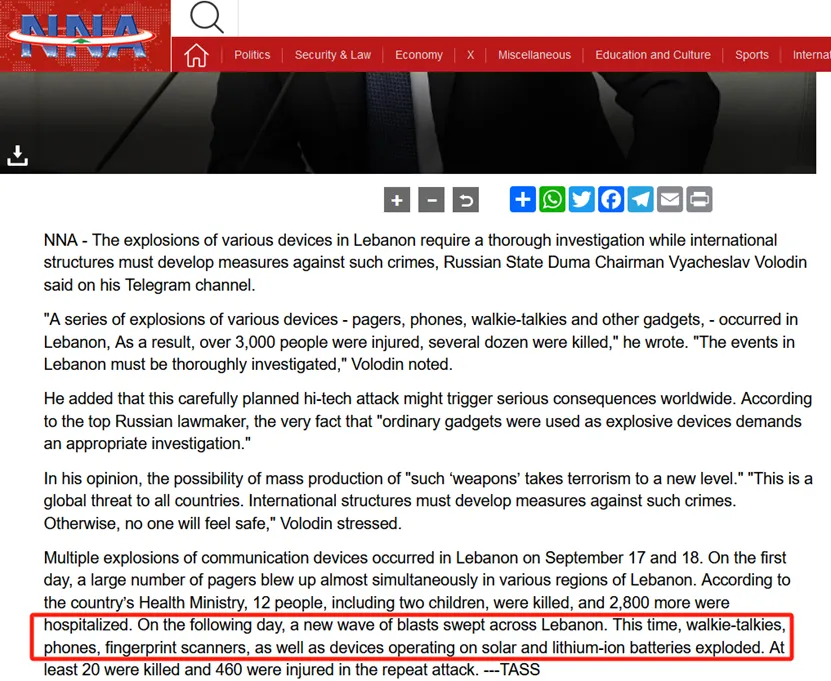
Caption: Related reports from the National News Agency of Lebanon
Source: NNA
The National News Agency of Lebanon (NNA) mentioned in its report that a new wave of explosions swept through Lebanon on September 18.This time, walkie-talkies, telephones, fingerprint scanners, and devices using solar and lithium-ion batteries exploded. The agency reported that rooftop solar systems in several areas of Beirut exploded, but did not provide further details. It is still unclear whether the explosions were caused by explosives hidden in the solar panels or other forms of external attacks.
Although there were no reports of deaths, NNA reporter Zahraani wrote in the report: 'A girl from Al-Marwaniyah town was injured due to an explosion of the solar system at home.'
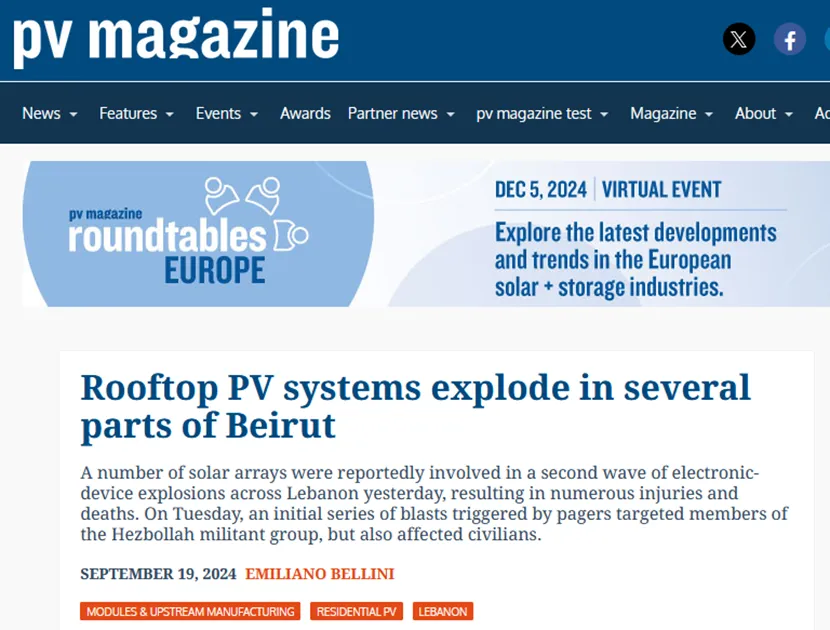
Caption: Media reports from the photovoltaic industry about explosions in Beirut's rooftop photovoltaic systems
Source: PV Magazine
Meanwhile, photos of explosions involving solar panels, fingerprint readers, and other devices began circulating on Lebanese social media.
One social media user wrote:'Lebanon: Damaged solar panels have caused serious electrical fires. So far, more than 500 people have been injured.' The accompanying image shows a burning solar panel and a house on fire.
However, both Deutsche Welle (DW) and MisBar have debunked the image, confirming that it is unrelated to the recent explosions in Lebanon.
Through reverse image search, it was found that this is a composite cover made up of two photos. The left image shows a burning solar panel, traceable to a post from February 2020. In that post, the U.S. Fire Safety Research Institute shared an article about the safety of photovoltaic systems along with the image.
The right image shows a burning house from a fire incident that occurred in December 2020. The fire incident took place in Canada, not Lebanon.
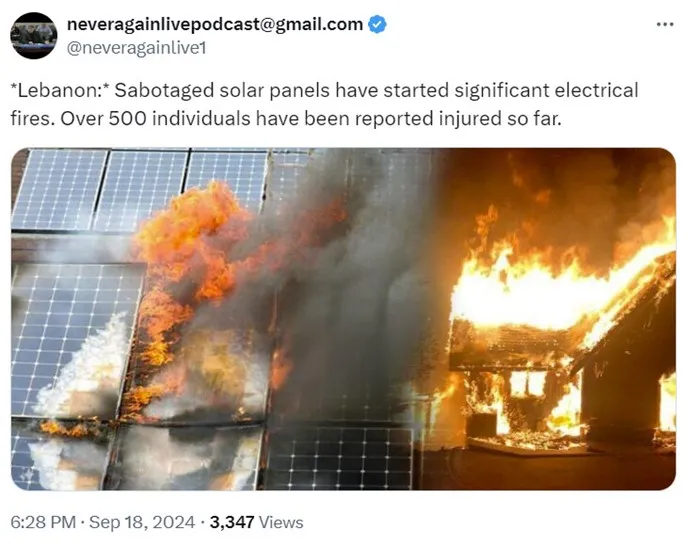
Caption: Posts on Lebanese social media about solar panel explosions
Source: X
According to reports from the National News Agency of Lebanon, households in multiple areas of Beirut and the south (including Nabatiyeh) also experienced explosions of solar systems. However, these reports remain isolated cases and are unverified.
Philippe Khoury, CEO of Me-green, a company providing end-to-end renewable energy solutions, and Pierre Khoury, chairman of the Lebanese government's National Energy Agency (LCEC), told L'Orient Today that they have not received any reports regarding solar system explosions.
Georges Abboud, CEO and co-owner of Earth Technologies, stated that despite this, many customers called them after the incidents, inquiring about what measures they should take to protect themselves.
Abboud stated that lithium iron phosphate used in solar systems can cause fires but does not explode.He believes that the explosion that occurred last Wednesday in Nabatiyeh, southern Lebanon, may not have been caused by the solar system itself, but rather by nearby walkie-talkie equipment, adding that he has not heard of other systems exploding or being hacked in other areas.
He said, 'Unless there is explosives in the solar system, it will not explode.' He also stated that the possibility of the system being hacked is extremely low, especially since hackers would need to operate on each system separately.
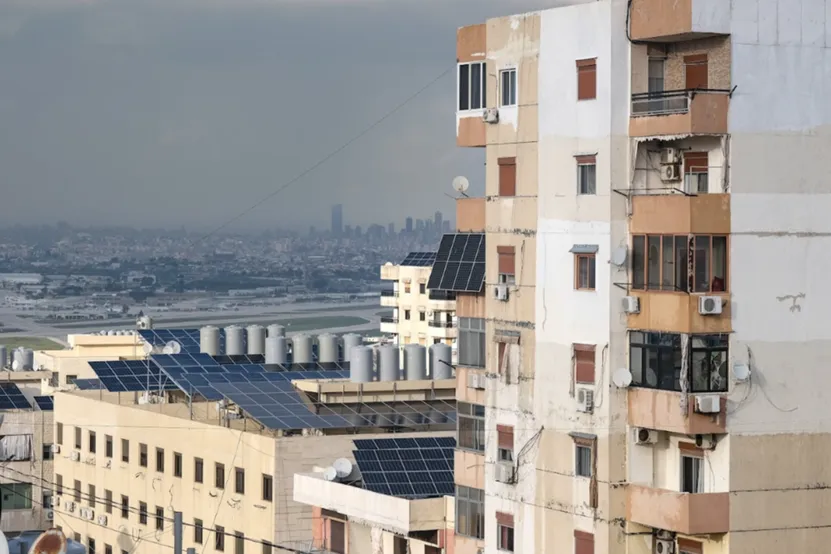
Caption: Solar panels on the rooftops of residential buildings in Beirut, the capital of Lebanon
Source: L'OrientToday
Ziad Makari, Lebanon's caretaker Minister of Information, told Reuters that panic is to be expected and pointed out that this attack is 'a new type of crime for the Lebanese,' occurring in people's homes, workplaces, and daily lives.
'There are many rumors - walkie-talkie explosions, solar power system explosions, television explosions, smartphone explosions.' He told Reuters: 'There are many lies... a lot of fake news, which is not helpful.'
Philippe Khoury and Pierre Khoury could not confirm whether solar systems would explode in a deliberate attack. However, they suggested that if people feel concerned, they can take extra precautions by disconnecting solar systems from the internet. Philippe Khoury said, 'This greatly limits the possibility of someone interfering with the system and manipulating parameters to trigger an incident.'
Solar panels are typically connected to photovoltaic inverters, which convert sunlight into electrical energy for use in the home's electrical grid. The inverter can be connected to Wi-Fi for remote monitoring of information regarding the performance of the panel system via an app or website.
'We should not panic,' Pierre Khoury assured, adding that removing the SIM card that connects the system to the network is a simple security measure that can limit the risk of hacking.
undefined

